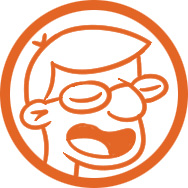
Welcome to the next Fightin' Words blog post! I was fortunate enough to play the Street Fighter 6 Closed Beta Test that took place October 7-10, 2022 and I wanted to share my thoughts on the game, its systems and its many features, including what I liked and what I hope they will improve. If you like discussions about fighting game philosophy, predictions about how a game will be played, or just want more SF6 content to digest, this will hopefully be something you enjoy.
As this is a long post that spans several pages, I will give a summary up front: I came away from the beta feeling quite encouraged about the direction of Street Fighter. I've been quite dissatisfied with fighting games over the last 6-7 years, largely because I feel so many companies have been making consistently bad decisions both in gameplay and in the quality of their software. What SF6 showed in this beta, still many months from release, is that they are making very good strides towards "getting it", and that gives me some hope for the future that I haven't had for some time.
(All the videos in this blog will initially play muted, but you can turn on sound by unmuting each video)
The Drive System

To give a quick overall description, the drive gauge is a group of 6 bars located under your health bar which governs a large part of Street Fighter 6's offense and defense. You must spend this meter to perform EX moves, Drive Rush (a dash cancel mechanic), Drive Impact (an armored attack that can crumple opponents), Drive Parry (a more advanced form of blocking), and Drive Reversal (a "get off me" guard cancel during block stun). You also lose this meter for blocking any attack and getting hit by certain attacks. If you run out of drive gauge, you enter "burnout" for about 20 seconds, where you will lose access to all drive techniques, take more block stun from everything, and take real chip damage.
I think they've got a winner here. I believe that meter management is one of the more fundamentally interesting parts of fighting games, because it forces situational awareness in a way that many other system mechanics can't accomplish, and this awareness leads to player creativity and moments of panic that allow for exciting games. The Drive System to me feels like SF's take on a system like UNI's GRD, a gauge that governs almost all your decisions offensively and defensively, and the depth of SF6 will be greater because of it.

They've nailed the conceptual things here:
1) You start every round full on drive, which means for the first time in SF history, you have access to EX moves at round start, and your first whiffed poke will almost certainly lead to you taking big damage and being cornered. There isn't much "build-up" in this game, where you can feel your opponent out and make big mistakes without big punishment because they don't have resources yet.
2) Because the meter replenishes each round, you can dump all your resources into a kill combo and not cost yourself anything long term. Being able to do a 3-bar drive rush even with only 0.25 bars left (but burning yourself out) is a smart gameplay decision, since it allows these "all-in" moments that can cost you a round if you're wrong, but not more than a round (that is, you will not also lose the next round because of your bad choices). People will mis-predict how much damage their combo can do and burn themselves out expecting a kill, but they'll be wrong and then will instead die themselves later. Similarly, people will be too conservative with their bar and leave an opponent alive when they could have killed. This enhances the excitement of ends of rounds in a lot of ways beyond just "they did the optimal combo and it was or wasn't enough damage to win".
3) The important thing: losing all your meter (burnout state) is brutal, but not so brutal that you instantly lose. You lose access to all drive tools, which is a huge loss, and you take (a lot of) chip damage and more block stun, which also sucks, but you're still a fully functioning character that can zone, anti-air, or frame trap, and you can still spend super so big damage is on the table. But burnout sucks just enough that you don't want to dump all your meter, survive burnout because who cares, then dump it all again, repeating the process. One thing Capcom needs to be very careful of, though, is infinite block strings in burnout due to the +4 frame advantage everything gets (or effectively infinite, ie, permanent frame traps vs. all jabs). I saw some stuff in the beta that looked dangerously close (apparently Luke's LP MP HP xx HP fireball can be looped forever if you don't have super?), although I didn't test it myself in training. I'm sure they're watching out for it, and hopefully nothing slips through at launch because it will be a bit of a disaster if something gets through.

4) Giving you access to tons of powerful tools, and then making you pay a steep price for mismanaging it, is a great way to reward creativity. Some players will choose to be over-conservative with their bar, but then that means they aren't optimizing their control or damage as much as they could. But you can't stretch it too far the other way and be so over-aggressive that you burn out constantly. Finding this line while also playing the neutral game skillfully will be hard and there will be tons of edge case scenarios where smart decisions become super fun to watch, spending the exact right amount of gauge, no more or less.
5) The final piece of the puzzle is that you don't fully control your own gauge. Blocking, punish counters, getting hit by drive impact, and getting hit by super (0.5/1/1.5/2 bars lost for level 1/2/3/CA respectively) will all cost you gauge, which means that you can't just spend down to 0.5 bars left and then ignore the system until you gain enough back. You need to be fully aware that you could lose a ton of gauge quickly due to how your opponent plays, and it will lead to "hunter vs. prey" scenarios where someone is stalking an opponent low on drive, trying to burn them out through block strings or unique combo choices.
When a system is hard to theory-craft the best way to play, or when you watch a replay and you're still not sure if it was the right choice to spend/not spend that drive meter because it's contingent on so many other decisions, you've got a system that is usually resistant to long term stagnation. Players will of course find lots of good optimizations for drive use, but there will always be those edge cases to enjoy, and finding the right uses in the pressure of a match will not be easy.
